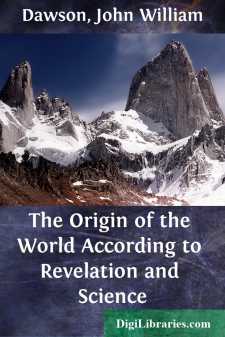Categories
- Antiques & Collectibles 13
- Architecture 36
- Art 48
- Bibles 22
- Biography & Autobiography 813
- Body, Mind & Spirit 142
- Business & Economics 28
- Children's Books 17
- Children's Fiction 14
- Computers 4
- Cooking 94
- Crafts & Hobbies 4
- Drama 346
- Education 46
- Family & Relationships 57
- Fiction 11829
- Games 19
- Gardening 17
- Health & Fitness 34
- History 1377
- House & Home 1
- Humor 147
- Juvenile Fiction 1873
- Juvenile Nonfiction 202
- Language Arts & Disciplines 88
- Law 16
- Literary Collections 686
- Literary Criticism 179
- Mathematics 13
- Medical 41
- Music 40
- Nature 179
- Non-Classifiable 1768
- Performing Arts 7
- Periodicals 1453
- Philosophy 64
- Photography 2
- Poetry 896
- Political Science 203
- Psychology 42
- Reference 154
- Religion 513
- Science 126
- Self-Help 84
- Social Science 81
- Sports & Recreation 34
- Study Aids 3
- Technology & Engineering 59
- Transportation 23
- Travel 463
- True Crime 29
The Origin of the World According to Revelation and Science
Description:
Excerpt
PREFACE.
The scope of this work is in the main identical with that of "Archaia," published in 1860; but in attempting to prepare a new edition brought up to the present condition of the subject, it was found that so much required to be rewritten as to make it essentially a new book, and it was therefore decided to give it a new name, more clearly indicating its character and purpose.
The intention of this new publication is to throw as much light as possible on the present condition of the much-agitated questions respecting the origin of the world and its inhabitants. To students of the Bible it will afford the means of determining the precise import of the biblical references to creation, and of their relation to what is known from other sources. To geologists and biologists it is intended to give some intelligible explanation of the connection of the doctrines of revealed religion with the results of their respective sciences.
A still higher end to which the author would gladly contribute is that of aiding thoughtful men perplexed with the apparent antagonisms of science and religion, and of indicating how they may best harmonize our great and growing knowledge of nature with our old and cherished beliefs as to the origin and destiny of man.
In aiming at these results, it has not been thought necessary to assume a controversial attitude or to stand on the defensive, either with regard to religion or science, but rather to attempt to arrive at broad and comprehensive views which may exhibit those higher harmonies of the spiritual and the natural which they derive from their common Author, and which reach beyond the petty difficulties arising from narrow or imperfect views of either or both. Such an aim is too high to be fully attained, but in so far as it can be reached we may hope to rescue science from a dry and barren infidelity, and religion from mere fruitless sentiment or enfeebling superstition.
Since the publication of "Archaia," the subject of which it treats has passed through several phases, but the author has seen no reason to abandon in the least degree the principles of interpretation on which he then insisted, and he takes a hopeful view as to their ultimate prevalence. It is true that the wide acceptance of hypotheses of "evolution" has led to a more decided antagonism than heretofore between some of the utterances of scientific men and the religious ideas of mankind, and to a contemptuous disregard of revealed religion in the more shallow literature of the time; but, on the other hand, a barrier of scientific fact and induction has been slowly rising to stem this current of crude and rash hypothesis. Of this nature are the great discoveries as to the physical constitution and probable origin of the universe, the doctrine of the correlation and conservation of forces, the new estimates of the age of the earth, the overthrow of the doctrine of spontaneous generation, the high bodily and mental type of the earliest known men, the light which philology has thrown on the unity of language, our growing knowledge of the uniformity of the constructive and other habits of primitive men, and of the condition of man in the earlier historic time, the greater completeness of our conceptions as to the phenomena of life and their relation to organizable matters—all these and many other aspects of the later progress of science must tend to bring it back into greater harmony with revealed religion....


